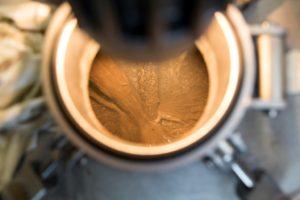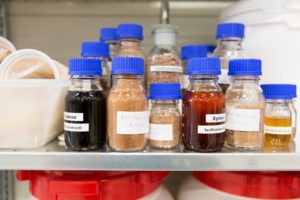The UNRAVEL Project
Over the next four years the European UNRAVEL project will demonstrate a sustainable and economically feasible biorefinery for the conversion of second generation biomass into fuels, chemicals and building materials. In their efforts the partnership that comprises research organisations, SMEs and large industry from six European countries are supported by the Bio Based Industries Joint Undertaking (BBI JU) which funds the UNRAVEL project with 3.6 million Euros.

Our Objective
UNRAVEL aims to develop an innovative lignocellulosic value chain based on the patented FABIOLA™ fractionation process and subsequent separation and conversion of the biopolymers to high value products, and to scale up these technologies from lab to pilot scale.
Learn more about our project objectives

Our Products
UNRAVEL will enable the utilization of currently underused agricultural and forestry residues for high value applications. Mixes of hardwood wood chips, forest residues and bark, as well as straw and nut shells, will be used to produce extractives, lignin-based polyols for Polyurethane (PUR) and Polyisocyanurate (PIR) foams and bitumen additives and chemical building blocks for the sugar fractions such as malic or xylonic acid.
Forestry residues and bark, as well as nut shells and excess of straw not used for soil improvement and livestock use are nowadays mainly deployed for generating heat and power. This is also the fate of the lignin from current bio-refineries and pulp and paper mills. Using these underutilized feedstocks UNRAVEL will generate a new high-value application for the lignin as bio-polymer.
The hemicellulose fraction in current bio-refineries and pulp and paper mills is generally also used to generate energy. The hemicellulose hydrolysate of the FABIOLA process contains predominantly monomeric xylose and a low concentration of inhibitors, which makes it an ideal feedstock for a higher value application such as xylonic or malic acid. These components have limited marked volumes at the moment.
The malic acid market currently encompasses high value applications as the food, feed and fine chemicals sector. Produced at larger scale and at lower cost as envisioned by UNRAVEL, both organic acids have a high potential to be used as platform chemicals for the synthesis of bio-polymers.
